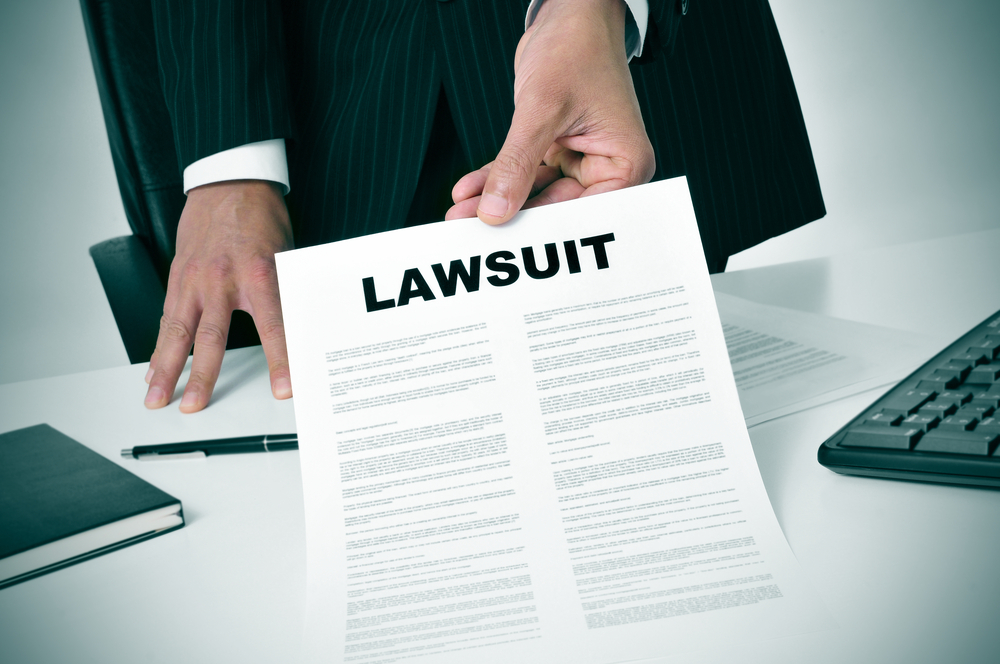After a serious accident, the immediate focus is on your physical well-being. But as the days and weeks pass, a different kind of stress builds. Medical bills arrive in the mail. You are unable to work, and your paychecks stop.
The financial pressure can feel as overwhelming as the physical pain. When someone else’s negligence causes you harm, whether in a car crash on a Queens highway, a construction accident in Brooklyn, or a slip and fall in a Suffolk County store, you can demand compensation for these financial losses.
These specific, calculable economic losses are known as special damages in the legal world. A Long Island personal injury attorney who understands special damages is crucial because they form the financial foundation of your personal injury claim. They represent every dollar you have lost or will lose because of your injury.
Schedule a Free Case Evaluation
What Exactly Are Special Damages?
In a personal injury lawsuit, "damages" is the legal term for the money awarded to a victim to compensate them for their losses. These damages are typically broken down into two main categories: general damages and special damages.
- General Damages: These are non-economic losses. They are intangible and subjective, compensating you for things like pain and suffering, emotional distress, and loss of enjoyment of life. There is no receipt for this kind of suffering, but it is a very real and significant part of your harm.
- Special Damages: These are the focus of this article. Special damages are also known as economic damages because they represent the specific, quantifiable financial losses you have incurred due to your injury. Think of them this way: if you can produce a bill, a receipt, or a pay stub for a loss, it likely falls under the category of special damages.
The core purpose of special damages is to make you "financially whole" again—to restore you to the financial position you were in before the accident occurred.
The Key Categories of Special Damages You Can Claim
A comprehensive personal injury claim accounts for every single economic loss, both past and future.
Here are the most common types of special damages.
Medical Expenses (Past and Future)
This is often the largest component of a special damages claim. It covers the full cost of all medical care you have received and will require in the future.
- Past Medical Bills: This is the easiest part to document. We will gather every bill and invoice related to your treatment, including:
- Ambulance and emergency room services
- Hospital stays and surgical procedures
- Appointments with doctors and specialists
- Diagnostic tests (X-rays, MRIs, CT scans)
- Prescription medications
- Physical, occupational, and rehabilitative therapy
- Medical devices like crutches or braces
- Future Medical Expenses: This is where the skill of an experienced attorney becomes vital. Serious injuries, like a traumatic brain injury (TBI) from a truck accident or nerve damage from a medical malpractice incident, often require a lifetime of care. We fight to secure compensation for projected future costs, which may include:
- Future surgeries or revision procedures
- Long-term nursing or in-home care
- Ongoing physical therapy and pain management
- Psychological counseling for trauma (PTSD)
- The lifetime cost of prescription drugs
- Wheelchairs, prosthetic limbs, and other assistive technologies
For clients in Westchester and Nassau counties who suffer catastrophic injuries, ensuring these future costs are fully covered is the key to long-term stability and quality of life.
Lost Wages and Loss of Earning Capacity
An injury doesn't just create bills; it can also take away your ability to pay them. Special damages cover the income you've lost and the income you will be unable to earn in the future.

- Lost Wages: This covers the salary, wages, and benefits you have already lost because your injury prevented you from working. We prove this using your pay stubs, W-2 forms, and direct communication with your employer.
- Loss of Earning Capacity: This is a more complex but critically important calculation. It compensates you for the loss of your ability to earn money in the future. If your injury forces you into a lower-paying job, to reduce your hours, or to retire early, you deserve to be compensated for that difference over the course of your expected career.
Consider these examples:
- A union construction worker in the White Plains suffers a severe back injury on a dangerous work site. He can no longer perform manual labor and must take a desk job for a fraction of his previous income.
- A graphic designer in Brooklyn sustains a TBI in a car accident, leaving her with cognitive deficits that prevent her from concentrating on complex projects.
- A surgeon from Long Island is the victim of medical malpractice, resulting in a hand injury that ends her career.
Property Damage
If your personal property was damaged or destroyed in the accident, the cost to repair or replace it is included in your special damages. The most common example is in motor vehicle accidents, where this covers:
- The cost to repair your car, truck, or motorcycle.
- If the vehicle is declared a total loss, the fair market value to replace it.
- The cost to replace any personal items that were in the vehicle and destroyed, such as a laptop, cell phone, or child car seats.
Other Out-of-Pocket Expenses
Life continues after an injury, but it often comes with new, unexpected costs. We work to identify and recover compensation for all related out-of-pocket expenses, such as:
- Transportation costs for travel to and from your medical appointments.
- The cost of modifying your home or vehicle to accommodate a disability (e.g., installing a wheelchair ramp or hand controls for your car).
- The cost of hiring help for household services you can no longer perform, such as cleaning, childcare, or landscaping.
- Any other reasonable and necessary expense you incurred solely because of the injury.
Proving Your Losses: How to Calculate Special Damages
A demand for special damages is only as strong as the evidence supporting it. Insurance companies will fight tooth and nail to dispute every cost. The foundation of a successful personal injury claim is meticulous documentation and expert validation.
Gathering Meticulous Documentation: We start by collecting every piece of paper that proves a financial loss. This includes all medical bills, pharmacy receipts, vehicle repair estimates, invoices for medical equipment, and records of any other out-of-pocket costs.
For lost income, we gather pay stubs, tax returns, and letters from your employer detailing your pay rate and time missed from work.
- Working with Medical Experts: To prove the need for future medical care, we consult with your treating physicians and independent medical experts. These specialists can provide professional opinions and sworn testimony about your diagnosis, your long-term prognosis, and the specific treatments, therapies, and medications you will need for the rest of your life.
- Hiring Financial and Vocational Experts: This is where we demonstrate the true, long-term financial impact of your injury.
- Life Care Planners create a detailed, itemized report outlining all your future medical and personal needs and their projected costs.
- Vocational Experts assess how your injuries have impacted your ability to do your job or any other job. They provide expert testimony on your diminished earning capacity.
- Economists take the data from the life care planners and vocational experts and project the total financial loss over your lifetime, calculating for factors like inflation and career advancement to arrive at a precise, defensible number.
This comprehensive, evidence-based approach sends a clear message to the insurance company: we are prepared to prove every dollar of your claim in court.
Why You Need a Skilled New York Personal Injury Attorney
Calculating and recovering special damages on your own is a monumental task, especially while trying to heal. Insurance adjusters are trained professionals whose job is to pay you as little as possible.
They will challenge the necessity of your medical treatments, downplay your lost income, and pressure you into a quick, lowball settlement.

- We Level the Playing Field: We know the tactics insurance companies use, and we know how to counter them. We handle all negotiations, protecting you from aggressive adjusters so you can focus on your recovery.
- We Have the Resources to Win: Building a case with expert testimony is expensive. Our firm has the financial resources to hire the nation’s top medical, vocational, and economic experts to build the strongest case possible for you.
- We Maximize Your Total Recovery: By meticulously proving the full extent of your special damages, we build an undeniable foundation for your claim. This not only ensures your economic losses are covered but also serves as powerful leverage to secure a fair and just amount for your general damages—your pain and suffering.
Frequently Asked Questions
Q: What is the difference between special damages and general damages?
A: Special damages are your specific, measurable financial losses, like medical bills and lost wages. You can calculate them with a receipt or an invoice. General damages are your non-financial losses, like pain, suffering, and emotional trauma. They are harder to quantify but are a very real part of your harm.
Q: Should I keep all my receipts after an accident?
A: Yes, absolutely. Keep every single bill, receipt, and statement related to your accident and injuries. This includes medical bills, pharmacy receipts, co-pay records, and even receipts for gas used to travel to doctor’s appointments. This documentation is the primary evidence we will use to prove your special damages.
Q: How is future lost income calculated if I am self-employed?
A: It is more complex than for a salaried employee, but it is absolutely possible. We will use your past tax returns, business profit-and-loss statements, invoices, and contracts to establish a history of your earnings. We then work with a vocational expert and an economist to project how your injury will impact your business’s future revenue and your personal income.
Q: My health insurance paid for my medical bills. Can I still claim them as special damages?
A: Yes, you must. Under New York's "collateral source rule," you can claim the full cost of your medical bills, even if your health insurance paid for them. This is because your health insurer often has a right to be reimbursed from your settlement (a process called subrogation). If you don't claim those costs, you could end up paying for them out of your own pocket.
Q: How long will it take to get my compensation?
A: The timeline for a personal injury case varies depending on its complexity, the severity of the injuries, and whether the insurance company is willing to negotiate fairly. While we work to resolve cases as efficiently as possible, our primary goal is to secure the maximum compensation you deserve. We will never sacrifice the value of your case for a quick settlement.
Contact Queller Fisher Today

You have been through enough. You should not have to worry about how you are going to pay for the costs of an injury that was forced upon you by someone else’s carelessness.
Choose our personal injury lawyers at Queller Fisher to lift that burden from your shoulders. We will handle the fight for your financial recovery so you can concentrate on your physical and emotional healing.
We serve clients throughout New York City and its surrounding counties, including Brooklyn, Queens, Westchester, Nassau, and Suffolk. Contact us today for a free and confidential case evaluation.
Call our New York City office at (212) 406-1700 or our White Plains office at (718) 892-0400, or fill out our online contact form. We are here to help.